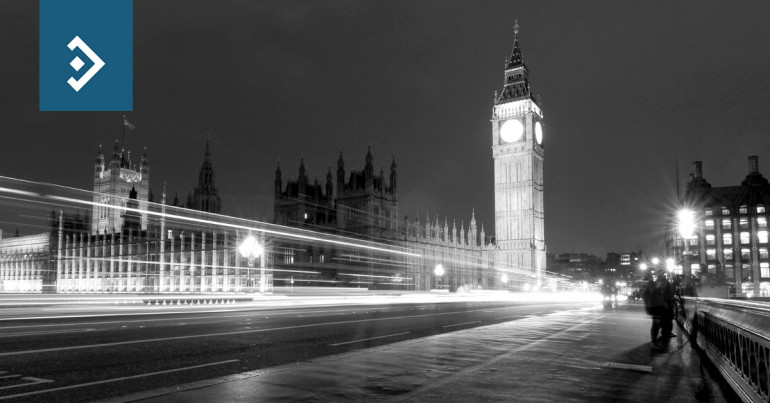
Early rate increases to control prices
Morning mid-market rates – The majors
13th January: Highlights
- Attracting workers to become major issue
- Inflation hits 7%, the fastest rise since 1982
- Eurozone inflation likely to follow U.S. in rate of increase
Johnson admits to attending Garden Party
Johnson is the living definition of a marmite Prime Minister; he is either loved or hated with no discernible middle ground.
He fits the Conservative party mould for their leader. Educated at Eton College, he then unattended Oxford University. His unkempt appearance and occasionally buffoonery hide a sharp mind, but he is prone to what could be kindly called overconfidence.
His occasional gaffe, for instance when he went completely off track at a recent speech to the Confederation of British Industry, has been forgiven as he had been seen as an asset in gaining votes and winning elections.
That whole edifice is now in danger of crashing down as he had to endure a painful character assassination from all sides of the opposition benches in Parliament as he admitted lying to both is Party and the House of Commons.
He bought a little time as he announced that the entire issue of potentially illegal activity during lockdown is being properly investigated, and he will come back to the House with the findings.
As has been said before, Johnson remains fireproof as long as he is seen as an asset to the Party given the stunning victory he engineered at the 2020General election. He may just have run out of road now and with nowhere to turn his time may be up.
The fallout from Johnson’s potential departure for the economy will be negligible, given the size of the Government majority, but a change of direction and emphasis under a new Prime Minister would likely be welcomed by the country.
The Bank of England decision at its last meeting to hike interest rates has been met with general approval by the financial markets. In itself, a twenty-five-basis point increase was little more than symbolic, but the fact that the Bank has started on a path to rates that are more normal has restored a degree of confidence in Andrew Bailey and a belief that he has got the timing just about right.
The move has underpinned the currency and will eventually see inflation brought under control. With confidence growing that cases of the Omicron variant have peaked, the outlook for the economy has suddenly begun to improve again.
Yesterday, the pound remained reactive to data being released in the U.S.
It rallied to a high of 1.3714, closing at 1.3710. Having broken resistance at 1.3680, a test of the top of the current trend at 1.3800 is eminently possible.
Considering your next transfer? Log in to compare live quotes today.
Powell’s relaxed attitude facing criticism
There is little doubt that his original appointment was something of a characteristic maverick move by then President, Donald Trump, but while he is not as flamboyant as earlier Chairmen, his actions in dealing with the crisis have been no different to what would have been expected from a Greenspan or Bernanke.
No, the one word, not deed, which threatens to trip him Powell up, is his use of the term transitory to describe rising inflation last summer.
While the causes of rising inflation may very well have been considered transitory, the fact that he was willing to write rising prices off as such has led to questions over his judgement.
It is a little glib to simply say that the era of low interest rates was ending in any event, and Powell is backed by several senior Central bankers on the FOMC. The Chair is the focal point of the Bank in good times and bad.
In actual fact, the FOMC was caught in a tricky situation last summer, since the recovery of the economy was by no means certain and continued extraordinary support was warranted. However, writing rising inflation off as transitory rather than acknowledging the risk has contributed to the current situation.
Inflation data was released in the U.S. yesterday. It showed that in December, the headline rose to 7% while ex food and energy it rose to 5.5%. The headline increase was as expected given what is happening in the energy sector, but the rise in core inflation was higher than had been predicted by the market.
The Fed is likely to remain more hawkish in its actions following the data, but Powell has been a little less so in his testimony, which has seen the dollar’s correction continue,
Yesterday the index fell to a low of 94.90 and closed at 95.00. Support is at 94.80 and if this is broken a test of long-term support at 94.50 could be seen.
Evidence predicts a high close to 7%
So far that hasn’t worked out as expected. The euro has reached a high so far this year of 1.1452 which was seen yesterday, technically it is beginning to show signs of breaking what were expected to be significant levels of resistance.
The market has a curious tone at the moment, with treaders almost buying euros to hedge dollar index positions with a sense of hesitance.
Given the likely divergence of monetary policy between the U.S. and Eurozone and the tone of the rhetoric being delivered by Jerome Powell and Christine Lagarde, no one is going to want to be exposed to a long euro position for any length of time.
The sense within the market is that at any moment a comment, more likely to come from Lagarde than Powell, could see the euro’s recent gains be wiped away in an instant.
For now, no one wants to stand in front of an onrushing train, so caution still is the watchword.
As U.S. inflation reached its highest level since 1982 yesterday, there have been comments from prominent Eurozone figures about price increases in the region approaching their highs.
On the surface and also if one digs down into the data, this looks like so much dreaming.
The ECB is currently blinded to the rise in inflation and is still trying to work out how to supply more support once the current round of PEPP ends in March.
It is more likely that inflation will reach at least the same level as in the U.S. in the next couple of months, and it will take an enormous effort to see it brought back to anywhere close to the ECB’s target of around 2%.
As already mentioned, the single currency hit a high of 1.1452 yesterday, closing at 1.1449. It is testing long-term resistance at 1.1450, but even if that level is broken it is doubtful that there will be much follow through.

About Alan Hill
Alan has been involved in the FX market for more than 25 years and brings a wealth of experience to his content. His knowledge has been gained while trading through some of the most volatile periods of recent history. His commentary relies on an understanding of past events and how they will affect future market performance.”



